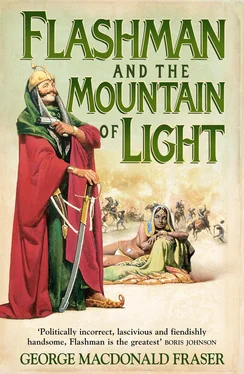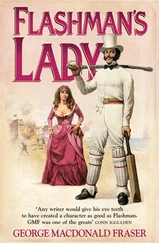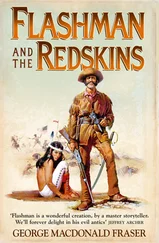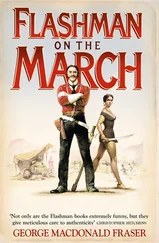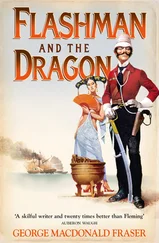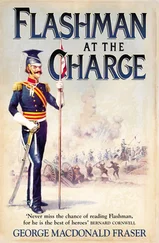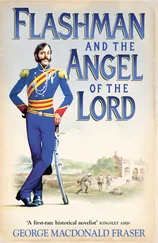You know something of them: tall, splendid fellows with uncut hair and beards, proud and exclusive as Jews, and well disliked, as clannish, easily recognised folk often are – the Muslims loathed them, the Hindoos distrusted them, and even today T. Atkins, while admiring them as stout fighters, would rather be brigaded with anyone else – excepting their cavalry, which you’d be glad of anywhere. For my money they were the most advanced people in India – well, they were only a sixth of the Punjab’s population, but they ruled the place, so there you are.
We’d made a treaty with these strong, clever, treacherous, civilised savages, respecting their independence north of the Sutlej while we ruled south of it. It was good business for both parties: they remained free and friends with John Company, and we had a tough, stable buffer between us and the wild tribes beyond the Khyber – let the Sikhs guard the passes, while we went about our business in India without the expense and trouble of having to deal with the Afghans ourselves. That’s worth bearing in mind when you hear talk of our ‘aggressive forward policy’ in India: it simply wasn’t common sense for us to take over the Punjab – not while it was strong and united.
Which it was, until ’39, when the Sikh maharaja, old Runjeet Singh, died of drink and debauchery (they say he couldn’t tell male from female at the end, but they’re like that, you know). He’d been a great man, and a holy terror, who’d held the Punjab solid as a rock, but when he went, the struggle for power over the next six years made the Borgia intrigues look like a vicarage soirée. His only legitimate son, Kuruk, an opium-guzzling degenerate, was quickly poisoned by his son, who lasted long enough to attend Papa’s funeral, where a building collapsed on him, to no one’s surprise. Second wicket down was Shere Singh, Runjeet’s bastard and a lecher of such enthusiasm that I’ve heard they had to prise him off a wench to seat him on the throne. He had a fine long reign of two years, surviving mutiny, civil war, and a plot by Chaund Cour, Kuruk’s widow, before they finally did for him (and his entire harem, the wasteful swine). Chaund Cour later expired in her bath, under a great stone dropped by her own slave-girls, whose hands and tongues were then removed, to prevent idle gossip, and when various other friends and relations had been taken off sudden-like, and the whole Punjab was close to anarchy, the way was suddenly clear for a most unlikely maharaja, the infant Dalip Singh, who was still on the throne, and in good health, in the summer of ’45.
It was claimed he was the child of old Runjeet and a dancing girl named Jeendan whom he’d married shortly before his death. There were those who doubted the paternity, though, since this Jeendan was notorious for entertaining the lads of the village four at a time, and old Runjeet had been pretty far gone when he married her; on the other hand, it was pointed out that she was a practised professional whose charms would have roused a stone idol, so old Runjeet might have done the deed before rolling over and going to God.
So now she was Queen Mother and joint regent with her drunken brother Jawaheer Singh, whose great party trick was to dress as a female and dance with the nautch-girls – by all accounts it was one continuous orgy at the Court of Lahore, with Jeendan galloping every man in sight, her lords and ladies all piling in, no one sober for days on end, treasure being spent like the wave of the sea, and the whole polity sliding downhill to luxurious ruin. I must say, it sounded quite jolly to me, bar the normal murders and tortures, and the furious plotting which apparently occupied everyone’s sober moments.
And looming like a genie over all this delightful corruption was the Khalsa – the Sikh army. Runjeet had built it, hiring first-class European mercenaries who had turned it into a truly formidable machine, drilled, disciplined, modern, 80,000 strong – the finest army in India, barring the Company’s (we hoped). While Runjeet lived, all had been well, but since his death the Khalsa had realised its power, and wasn’t prepared to be cat’s paw to the succession of rascals, degenerates, and drunkards who’d tumbled on and off the throne; it had defied its officers, and governed itself by soldiers’ committees, called panches , joining in the civil strife and bloodshed when it suited, slaughtering, looting, and raping in disciplined fashion, and supporting whichever maharaja took its fancy. One thing was constant about the Khalsa: it hated the British, and was forever demanding to be led against us south of the Sutlej.
Jeendan and Jawaheer controlled it as their predecessors had done, with huge bribes of pay and privileges, but with lakhs being squandered on their depravities, even the fabulous wealth of the Punjab was beginning to run dry – and what then? For years we’d been watching our northern buffer dissolve in a welter of blood and decay, in which we were treaty-bound not to intervene; now the crisis was come. How long could Jawaheer and Jeendan keep the Khalsa in hand? Could they prevent it (did they even want to?) taking a slap at us with the loot of all India as the prize? If the Khalsa did invade, would our own native troops stand true, and if they didn’t … well, no one, except a few canny folk like Broadfoot, cared to think about that , or contemplate the kind of thing that half-happened twelve years later, in the Mutiny.
So that’s how things stood in August ’45, 6but my alarms, as usual, were entirely personal. Meeting Sale had scuppered my hopes of lying low for a spell: he would see to it that I had a place on Gough’s staff, says he, beaming paternally while I frisked in feigned enthusiasm with my bowels dissolving, for I knew that being old Paddy’s galloper would be a one-way trip to perdition if the bugles blew in earnest. He was Commander-in-Chief, was Gough, an ancient Irish squireen who’d fought in more battles than any man living and was forever looking for more; loved by the troops (as such lunatics always are), and much sympathised with just then, when he was sweating to secure the frontier against the coming storm, and calling down Celtic curses on the head of that sensible chap Hardinge in Calcutta, who was forever cautioning him not to provoke the Sikhs, and countermanding his troop movements. 7
But I had no way out; Sale was off now post-haste to resume his duties as Quartermaster-General on the frontier, with poor Flashy in tow, wondering how I could catch measles or break a leg. Mind you, as we rode north I was much reassured by the assembly of men and material along the Grand Trunk Road: from Meerut up it was aswarm with British regiments, Native Infantry, dragoons, lancers, Company cavalry, and guns by the park – the Khalsa’ll never tackle this crowd, thinks I; they’d be mad. Which of course they were. But I didn’t know the Sikhs then, or the incredible shifts and intrigues that can make an army march to suicide.
Gough wasn’t at headquarters in Umballa, which we reached early in September; he’d gone up to Simla for a breather, and since Sale’s wife was living there we pushed straight on, to my delight. I’d heard of it as a great place for high jinks and good living, and, I foolishly supposed, safety.
It was a glorious spot then, 8before Kipling’s vulgarians and yahoos had arrived, a little jewel of a hill station ringed in by snow-clad peaks and pine forests, with air that you could almost drink, and lovely green valleys like the Scotch border country – one of ’em was absolutely called Annandale, where you could picnic and fête to heart’s content. Emily Eden had made it the resort in the ’thirties, and already there were fine houses on the hillsides, and stone bungalows with log fires where you could draw the curtains and think you were back in England; they were building the church’s foundations then, on the ridges above the Bazaar, and laying out the cricket ground; even the fruits and flowers were like home – we had strawberries and cream, I remember, that first afternoon at Lady Sale’s house.
Читать дальше
